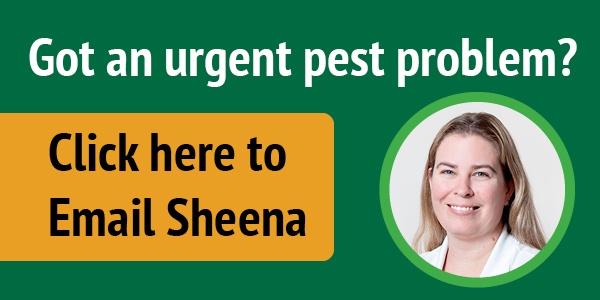Here’s Why Wasps are Worse in the Fall
It’s time again for many New Englanders’ favorite season: fall! Fall in Western Massachusetts and Northern Connecticut means colorful leaves, apple picking, flannel, and pumpkin spice-scented everything. But there’s one tiny, black-and-yellow downside to the autumn season, Yellow Jacket wasps! Many people don’t understand why wasps are worse in the fall, so we’ll give you an explanation.
Wasps are Worse in the Fall? Why?
During the early fall months, you might notice more wasps and yellow jackets hovering around your soda can or garbage bins than you noticed during the summer. How can this be possible, aren’t all pests more active during the warm summer months? Nope! In short, bees seem worse, or more aggressive, during the fall months for two reasons:
- The bee and wasp nest populations grow over the summer, so there are more of these flying pests. Some colonies/nests can reach upwards of 4,000 members by the end of the summer!
- In the fall, yellow jacket and other wasp nests start to die off. As such, they produce fertile females to overwinter in nooks and crannies, such as attics and wall voids. In the spring, these wasps will start new nests. Too survive the winter, the fertilized females search for carbohydrates (e.g. sugar) in the fall so they can “bulk up” and make it through the winter.
You heard that right! Wasps need to ‘carb up’ during the fall so they can survive during the cold winter months (Fun note: this does not include honey bees! The entire honey bee hive survives the winter feeding on…honey!). This means wasps will be extra persistent in their search for fruit, sweets, and other sugary items, like your soda!
What Steps Should You Take to Keep Away the Bees?
Because Yellow Jacket wasps are worse in the fall, you still need to be cautious when spending time outdoors. A lot of people opt for picnics, bonfires and barbecues once the weather cools down, and fall is a popular time for fairs and festivals. If you’ll be spending any time outside, be sure to:
- Keep food and drinks in covered containers
- Drink out of clear containers so you can see the contents
- Avoid wearing excessive fragrances
- Try to avoid wearing light-colored clothing or floral prints.
- Remain calm if you see a wasp or yellow jacket, and don’t swat at it! This can increase your chance of getting stung.
If you have a nest or hive on your property, your best bet may be to call your local pest control professional. It is not recommended to try taking care of a stinging insect infestation on your own. As always, feel free to reach out to Graduate with any pest problems, bee-related or otherwise!
YOU MAY ALSO LIKE
These related articles



